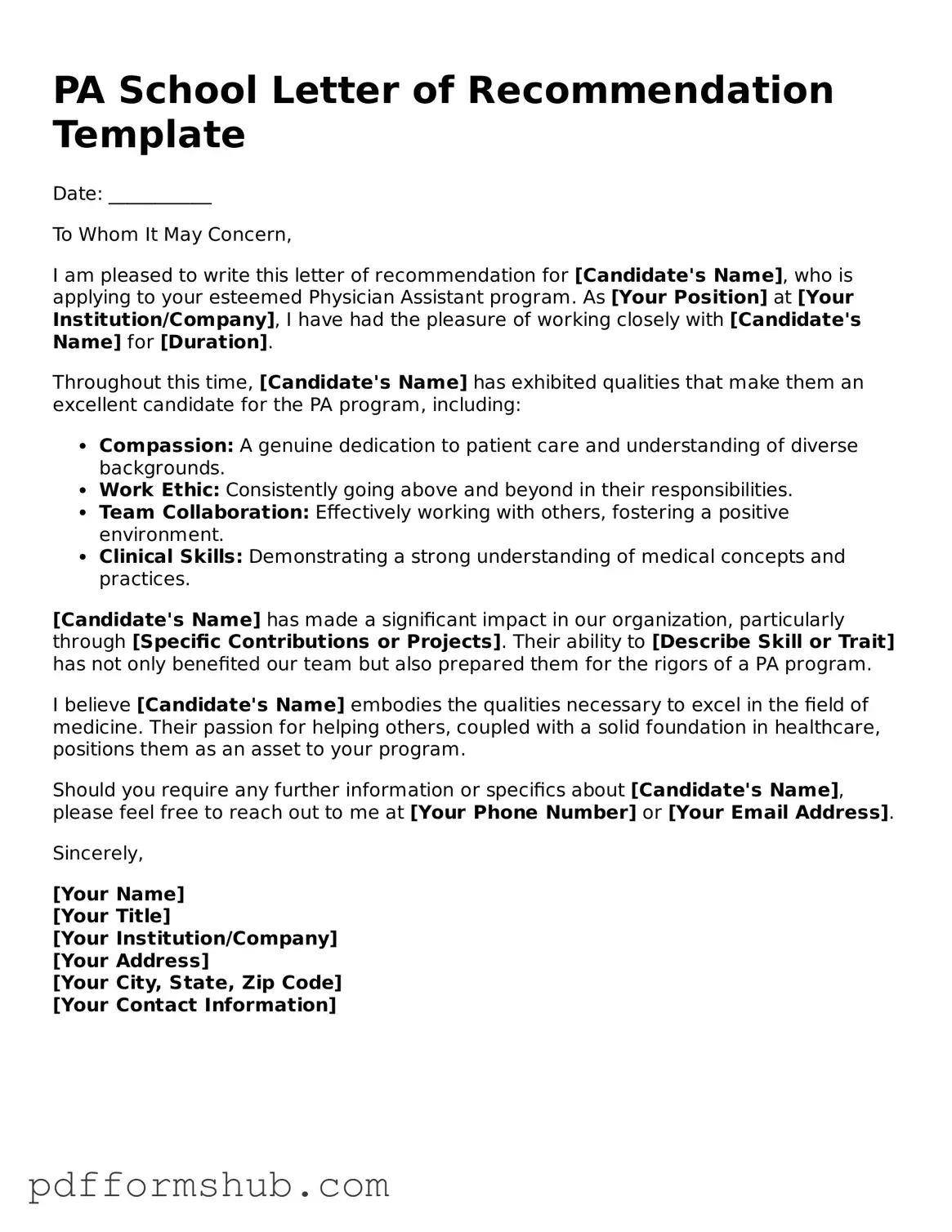Valid PA School Letter of Recommendation Form
The PA School Letter of Recommendation form is a critical document that supports a candidate's application to physician assistant programs. This form allows recommenders to highlight the applicant's strengths, skills, and suitability for the healthcare field. Completing this form accurately can significantly enhance an applicant's chances of admission.
Ready to make a strong impression? Fill out the form by clicking the button below.
Customize Form

Valid PA School Letter of Recommendation Form
Customize Form

Customize Form
or
Free PDF Form
Short deadline? Complete this form now
Complete PA School Letter of Recommendation online without printing hassles.